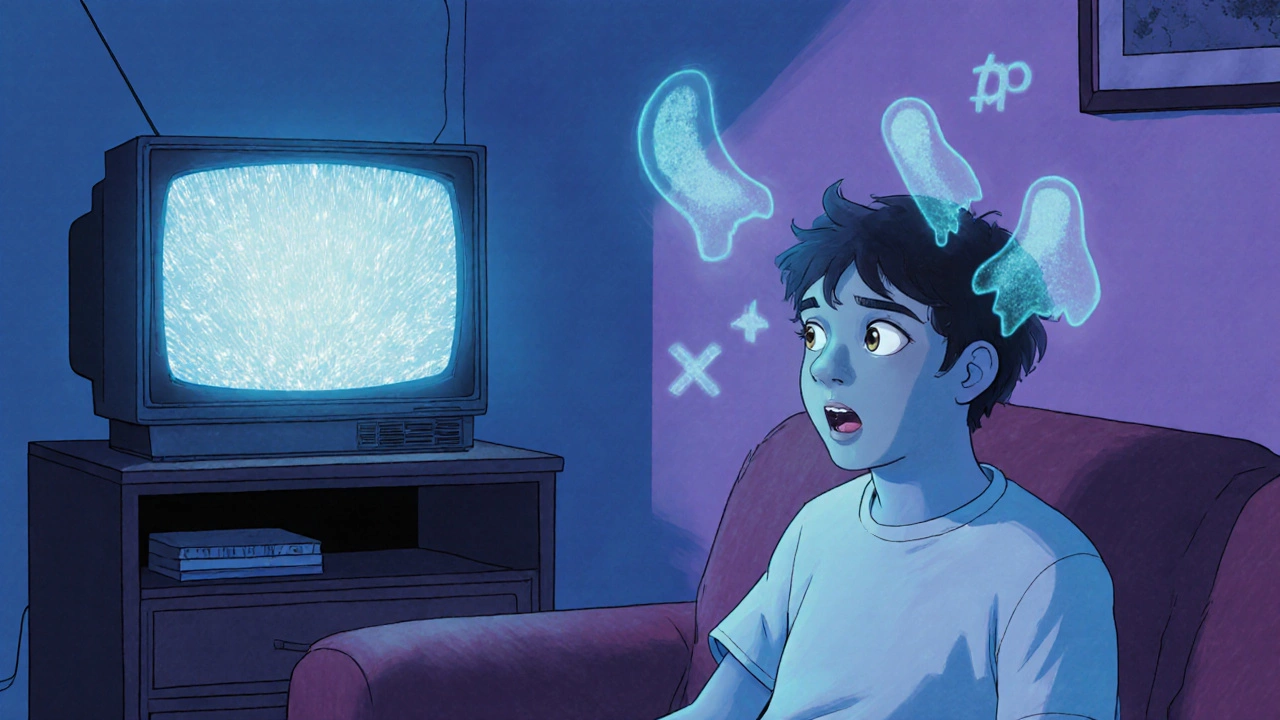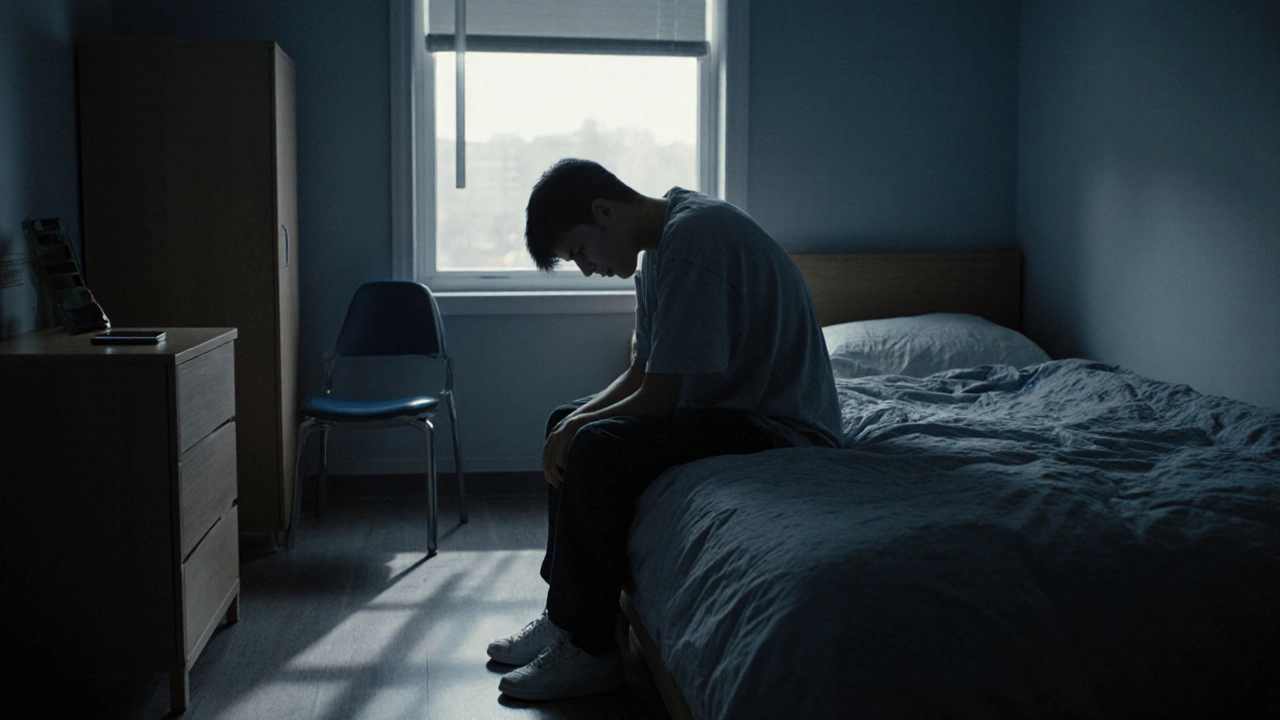Early Warning Signs Checker
How This Works
This tool helps identify potential early warning signs based on the article's criteria. It is not a diagnostic tool and should not replace professional evaluation. Results indicate concern levels but require clinical assessment.
Warning Sign Assessment
Your Results
Spotting trouble before it spirals can save a lifetime of struggle. When it comes to schizophrenia, noticing the subtle red flags early makes a huge difference in treatment outcomes.
What is schizophrenia?
Schizophrenia is a chronic mental health disorder characterized by disruptions in thinking, perception, emotion, and behavior. According to the DSM-5, it affects roughly 1% of the global population and typically emerges in late adolescence or early adulthood.
Why early recognition matters
Research shows that people who receive early intervention within the first two years of symptom onset have a 20‑30% higher chance of achieving functional recovery. Delaying help often leads to entrenched patterns, poorer social outcomes, and increased hospitalization rates.
Three warning signs you shouldn’t ignore
1. Social withdrawal and flattening of affect
One of the most common schizophrenia warning signs is a noticeable pull‑back from friends, family, and previously enjoyed activities. This isn’t just “being shy” - it’s a marked reduction in emotional expression, known as negative symptoms. People may speak less, show little facial reaction, and lose interest in hobbies they once loved.
Case example: Jamie, 22, stopped attending university lectures and stopped replying to messages for weeks. His parents thought he was just “burned out,” but the persistent isolation was an early cue that something deeper was brewing.
2. Unusual perceptions - hallucinations and delusions
While full‑blown psychotic episodes are more obvious, the early stages often feature milder perceptual distortions. Hallucinations can begin as fleeting sounds or sensations that others don’t share. Delusions may start as odd beliefs - for instance, thinking that a TV commercial is sending personal messages.
These experiences fall under the category of positive symptoms because they add abnormal experiences to a person’s mental life. They often feel terrifying to the individual, leading them to hide the symptoms out of shame.
3. Disorganized thinking and speech
Another hallmark is a breakdown in logical flow. People might jump from one topic to another without clear connections, produce disorganized speech, or use neologisms (made‑up words). In everyday conversation, this can look like “sentence scramble” or answers that don’t match the question.
For example, Maya began answering interview questions with unrelated anecdotes about weather patterns, leaving interviewers confused. Her coworkers assumed she was simply “rambling,” but the pattern was an early manifestation of cognitive disarray.

How to tell the difference from normal teen or adult behavior
Everyone goes through phases of mood swings, occasional loneliness, or strange dreams. The key is persistence, intensity, and impact on daily functioning. Below is a quick side‑by‑side comparison:
| Aspect | Typical behavior | Warning sign |
|---|---|---|
| Social life | Occasional alone time, still engages socially | Gradual, sustained withdrawal; avoids all contact |
| Thoughts | Occasional day‑dreams, no distress | Persistent strange beliefs or hearing voices |
| Speech | Occasional rambling when excited | Frequent incoherence, unrelated topic jumps |
What to do if you notice these signs
- Start a gentle conversation. Use “I’ve noticed…” statements rather than accusations.
- Encourage a professional evaluation. A qualified psychiatrist can conduct a thorough assessment using the DSM-5 criteria.
- Offer practical support - accompany them to appointments, help with medication reminders, or connect them with local mental‑health services.
- Educate yourself about treatment options. Antipsychotic medication, cognitive‑behavioral therapy, and supported employment programs have strong evidence bases.
- Maintain boundaries and self‑care. Supporting someone with schizophrenia can be emotionally taxing; consider a therapist for yourself if needed.

Common misconceptions that cloud judgment
Myth 1: "Schizophrenia is the same as having multiple personalities." Reality: It’s a single‑person disorder involving distorted perception, not distinct identities.
Myth 2: "Only people with a family history get it." While genetics raise risk, environmental stressors, cannabis use in adolescence, and prenatal complications also play roles.
Myth 3: "People with schizophrenia are always violent." Most individuals are non‑violent; the stigma stems from media sensationalism.
Resources and where to find help
- National Health Service (NHS) mental health helpline - free 24/7 advice for UK residents.
- Mind - offers local support groups and online resources.
- Schizophrenia UK - specialist charity with information on early detection programs.
- University counseling centers - often provide low‑cost assessments for students.
Bottom line
Spotting the three warning signs-social withdrawal, unusual perceptions, and disorganized speech-can pave the way for timely help and a better long‑term outlook. Trust your instincts, talk openly, and guide the person toward professional care.
What age does schizophrenia usually appear?
Most people experience their first symptoms between ages 16 and 30, with men typically showing signs slightly earlier than women.
Can early warning signs be treated without medication?
Yes. Early psychotherapy, social skills training, and lifestyle adjustments can reduce severity, but medication often becomes necessary if psychotic symptoms progress.
How long does it take to get a diagnosis after first symptoms?
The diagnostic process can take anywhere from a few weeks to several months, depending on access to mental‑health services and the clarity of symptom presentation.
Do all people with schizophrenia experience hallucinations?
Hallucinations are common but not universal. Some individuals exhibit primarily negative symptoms like flat affect or cognitive deficits without prominent hallucinations.
Is there a cure for schizophrenia?
There is no cure, but a combination of medication, psychotherapy, and community support can help many people lead productive, fulfilling lives.
